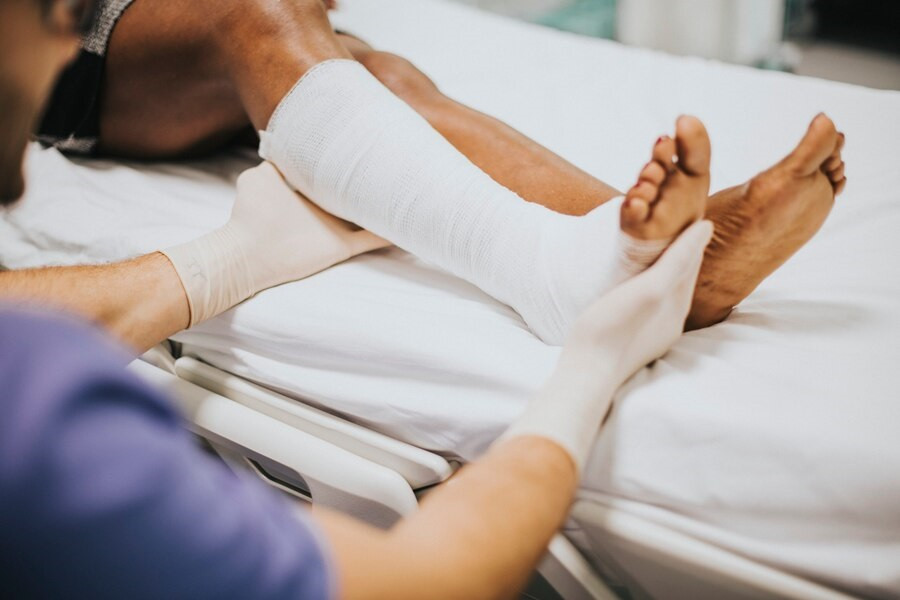There is a reason why injured skin must be properly cared for and treated, even if the wound is minor, such as a cut or scratch. Small wounds, such as cuts or scrapes, can allow germs or bacteria to enter the body.
The skin is the body's primary line of defense against infection. Cleaning the wound with clean water and soap, closing it, and keeping the surrounding area clean can help prevent infections such as cellulitis.
What is cellulitis?
Cellulitis is a bacterial infection of the skin or underlying tissues. Cellulitis can appear anywhere on the body, but it is most commonly found in the legs, feet, and toes. Cellulitis is caused by bacterial infections like streptococcus and staphylococcus, both of which are methicillin-resistant and can cause serious infections.
Some factors that increase the risk of cellulitis include:
- Wounds that are not properly cleaned and treated
- Weak immune system
- Skin conditions such as eczema and athlete's foot
- Chronic swelling in the legs or arms (lymphedema)
- Previous history of cellulitis
- Being overweight or obese
Signs that a wound has cellulitis
Cellulitis causes several symptoms on the affected skin area, including:
- Redness and inflammation
- Severe pain
- Tender skin
- Swelling or tight skin
- The skin feels warm to the touch
In addition to the symptoms listed above, you may also experience:
- Fever
- Chills
- Sweating
- Nausea
- Appearance of boils and pus
- Swollen lymph nodes
- Feeling unwell
Prevention of infection in injured skin
Cellulitis is not to be underestimated. If you notice signs of infection in the wound, see a doctor right away. Without proper treatment, an infected wound may develop complications such as:
- The presence of bacteria in the bloodstream (bacteremia)
- Inflammation of the lining of the heart chambers and valves (endocarditis)
- Inflammation and swelling of bone tissue (osteomyelitis)
- Toxic shock syndrome (TSS)
- Extreme body response to infection (sepsis)
You can prevent the complications listed above by taking the following preventative measures:
- Clean the wound by washing it under running water with soap, whether the wound is small or medium
- Use a cream, such as Vaseline to protect the wound from germs
- Cover the wound with a bandage and change it daily
- Check for signs of irritation and infection, such as discharge or pus from the wound, which indicate that you require additional care
People with diabetes have poor blood circulation, making them more susceptible to cellulitis. You need to get proper wound care to prevent infection, manage blood sugar levels, and check for dead skin tissue. The dead skin tissue must be removed and cleaned by a medical professional.
If you need medical advice or consultation, you can either visit a doctor or make use of the consultation features that are available in the Ai Care application by downloading the Ai Care application from the App Store or Play Store.
Looking for more information about other diseases? Click here!
- Sean Edbert Lim, MBBS
Mayo Clinic (2022). Cellulitis. Available from: https://www.mayoclinic.org/diseases-conditions/cellulitis/symptoms-causes/syc-20370762
Health Direct (2023). Cellulitis. Available from: https://www.healthdirect.gov.au/cellulitis
Cleveland Clinic (2022). Cellulitis. Available from: https://my.clevelandclinic.org/health/diseases/15071-cellulitis
MSD Manuals (2023). Bacteremia is the presence of bacteria in the bloodstream. Available from: https://www.msdmanuals.com/home/infections/bacteremia-sepsis-and-septic-shock/bacteremia
Mayo Clinic (2022). Endocarditis. Available from: https://www.mayoclinic.org/diseases-conditions/endocarditis/symptoms-causes/syc-20352576
John Hopkins Medicine. Osteomyelitis. Available from: https://www.hopkinsmedicine.org/health/conditions-and-diseases/osteomyelitis
NHS UK (2023). Toxic shock syndrome. Available from: https://www.nhs.uk/conditions/toxic-shock-syndrome/
Medline Plus (2023). Sepsis. Available from: https://medlineplus.gov/sepsis.html
Advancing Foot and Ankle Medicine and Surgery. What is a Diabetic Foot Ulcer?. Available from: https://www.apma.org/diabeticwoundcare











